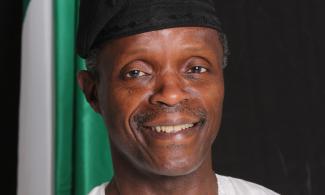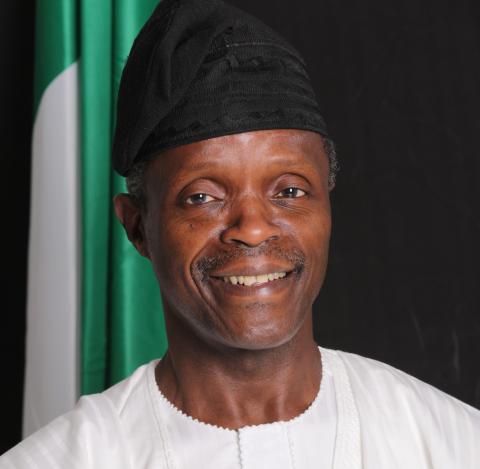
The federal government’s inability to pay wages to workers, coupled with the extreme poverty that is prevalent in a large portion of Nigerian society caused him paint such a gloom picture of Nigeria’s economic state.

On Wednesday, Vice President-elect, Yemi Osinbajo, said that the Nigerian economy has reached its worst moment in history. He said Nigeria’s local and foreign debts now stand at $60 billion.
These statements came after a two-day Policy Dialogue on the Agenda for Change organised by the Policy, Research and Strategy Directorate of the All Progressives Congress (APC) Presidential Campaign Council.
Osinbajo talked extensively on the state of Nigeria’s weak economy citing that worker salaries across the country have not been paid for months because of a lack of resources.
The federal government’s inability to pay wages to workers, coupled with the extreme poverty that is prevalent in a large portion of Nigerian society caused him paint such a gloom picture of Nigeria’s economic state.
He said, “The figures of extreme poverty in our society- 110 million by current estimates- makes it clear that our biggest national problem is the extreme poverty of the majority. Thus, no analysis is required to conclude that dealing with poverty and its implications is a priority. We are concerned that our economy is currently in perhaps its worst moment in history.
“Local and international debt stands at US$60 billion. Our Debt servicing bill for 2015 is N953.6 billion, 21 per cent of our Budget. On account of severely dwindled resources, over two-thirds of the states in Nigeria owe salaries. Federal institutions are not in much better shape. Today, the nation borrows to fund recurrent expenditure.
“This is also against the backdrop of a highly unequal society in which, by some reckoning, the largest chunk of the benefits of our national wealth accrues to a small percentage of our population. Our manifesto offered a vision of shared prosperity and socio-economic inclusion for all Nigerians that leaves no one behind in the pursuit of a prosperous and fulfilling life.
Osinbajo also said that an essential aspect of dealing with the country’s economy is upholding a dialogue that continually exemplifies a consultative approach to policy making.
He also said that the new administration will focus keenly on education. Citing that methods of teaching should be a big focus of the change agenda. He expressed that the administration would make training teachers a priority in the ongoing effort increase the quality of Nigerian education.
Osinbajo believes that the new Buhari led administration will focus much more on the improvement of the lives of the electorate.
“Our approach focused on the electorate as being worthy of serious and sincere engagement and sought to bring clarity to the issues at stake.
Osinbajo and President-Elect Muhammadu Buhari will be taking the helm of the federal government on May 29th after the inauguration in Abuja.